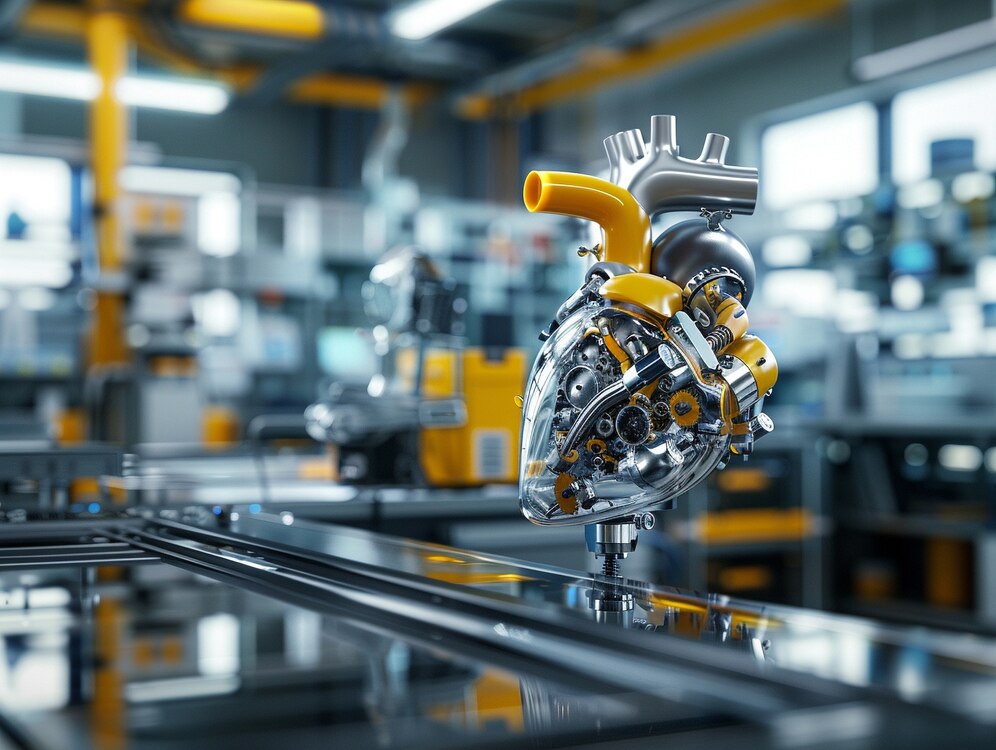Industry 5.0 or ‘fifth industrial revolution’ represents a new phase in industrial evolution, where technology is no longer an end in itself but is placed at the service ofman and society. The goal of Industry 5.0, defined by the European Commission as the completion of Industry 4.0, is to create a working environment where human skills are in harmony with machine capacity, promoting innovation, efficiency, quality and sustainability of production processes.
This requires companies to monitor and reduce their ecological impact and energy consumption.
The transition to Industry 5.0 is therefore based on the human-machine paradigm and the use of advanced technologies such as artificial intelligence, robotics and augmented reality to improve efficiency and safety.
SOCIETY 5.0
In 2016, the Keidanren, Japan’s largest business federation, presented the concept of Society 5.0: a society that seeks to balance economic development with solving socio-environmental problems, where technologies are used not just for profit but to improve the quality of life of every citizen. Underlying this is a simple assumption: the way people provide for their livelihood is linked to the way they build their society.
Source: https://commons.wikimedia.org/wiki/File:Society5.jpg
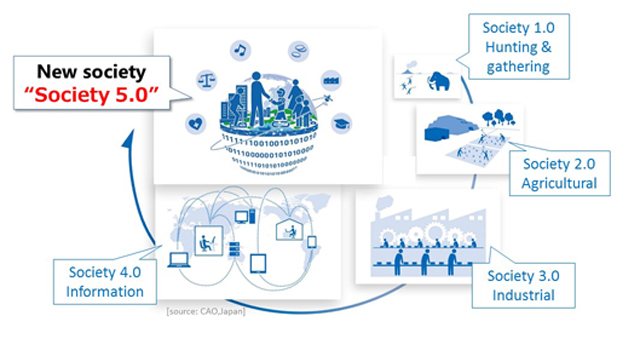
Pillars of Industry 5.0
Unlike Industry 4.0, which focuses on automation and efficiency, Industry 5.0 putshumans at the centre of the production process and aims to create a balance between technological progress and human well-being, generating benefits not only for companies, but also for society and the environment.
These are the pillars on which it is founded:
- Sustainability: to respect the environment, to reuse and recycle natural resources or otherwise avoid their depletion, to optimise energy consumption and emissions, to develop circular processes that reduce the environmental impact of its activities.
- Resilience: ability to adapt and react to sudden changes, to overcome crisis. This means developing a high degree of production robustness and flexible business processes, able to guarantee products and/or services even in the event of pandemics, natural disasters, geopolitical changes.
- Centrality of the person: technology is at the service of the person’s quality of life (and not vice versa) by enhancing their skills and creativity. This means being more attentive to fundamental rights such as privacy, autonomy, human dignity. In this sense, it is important that the company, thanks to technology, trains the worker with respect to his needs rather than simply ‘adapting’ him to technology.
Examples of Industry 5.0 applications
The Industry 5.0 approach aims to harness the best of human capabilities and digital technologies, leading to innovative and customised solutions in multiple sectors, improving people’s quality of life and protecting our planet.
There are numerous examples of application and here are some of them.
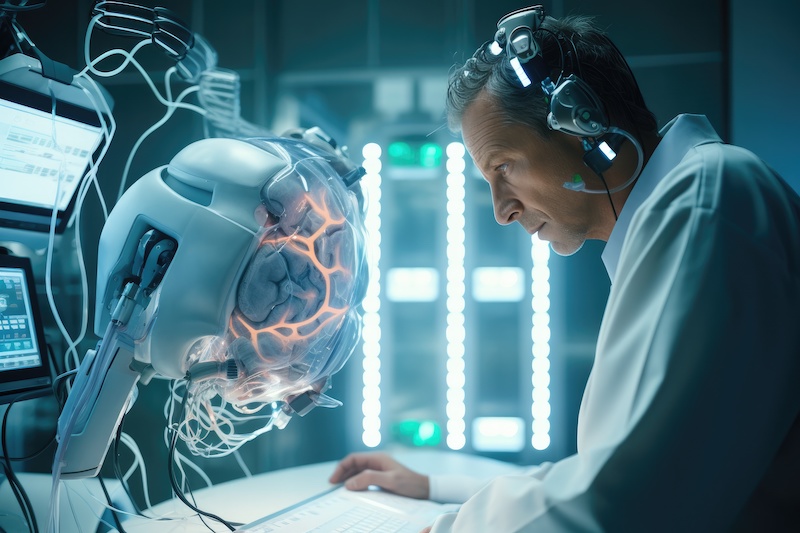
Healthcare: surgical robots assisting doctors during operations, improving precision and reducing risks.
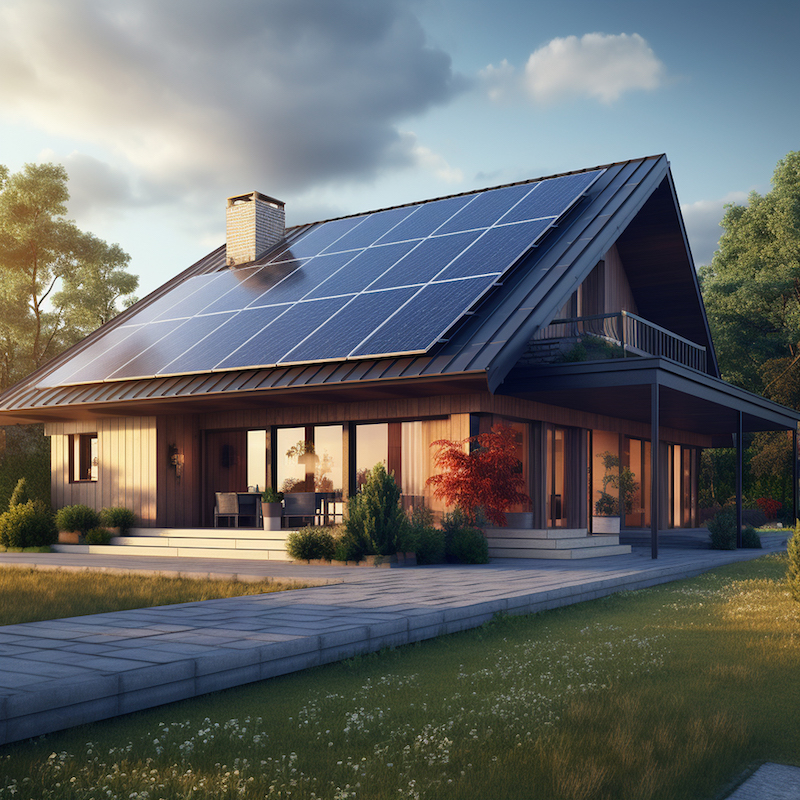
Energy: zero-energy buildings that produce enough energy to meet their own needs, thanks to the integration of technologies such as photovoltaics and energy storage.
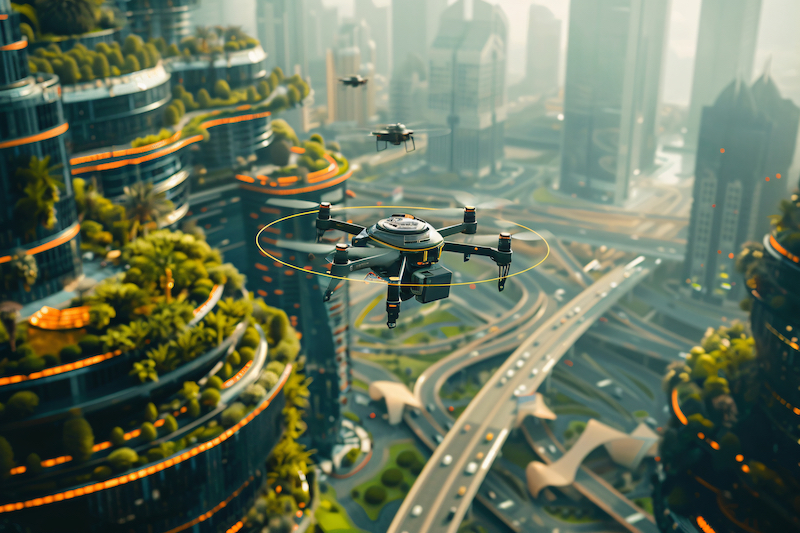
Logistics: drones and driverless trucks optimise deliveries, reducing costs and environmental impact.
What effects for companies?
Investing in Industry 5.0 means creating a more robust business model in line with the challenges of our time. Among the benefits a company can achieve are:
- Increased competitiveness and innovation
- Efficiency and productivity
- Reducingenvironmental impact
- Best reputation
- Enhancing human resources
DID YOU KNOW?
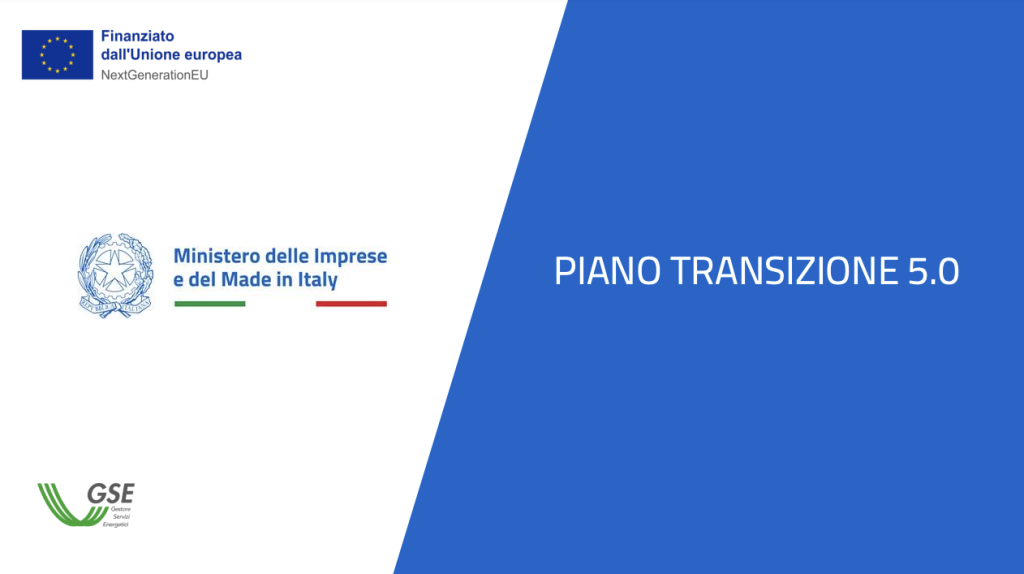
The Transition 5.0 Plan is a tax incentive programme introduced by the Italian government to stimulate companies to invest in digitisation and energy transition, in line with the principles of Industry 5.0. It is aimed at all companies, regardless of size and sector.
Source:
“Transition 5.0 will be a new industrial policy tool that combines innovation and training: it is the first plan in Europe with incentives for the two transitions, green and digital, together with worker training. The measure will give a significant boost to investments by Italian companies, making them more competitive against the new global scenarios‘.
Adolfo Urso, Minister of Enterprise and Made in Italy.
In particular, the Transition 5.0 Plan incentivises investments that lead to a reduction in energy consumption and the adoption of renewable sources, and introduces an incentive in the form of a tax credit for companies that make new investments, in the two-year period 2024-2025, in advanced technologies and solutions for energy saving and self-production.
Companies can recover up to 45% of the expenses incurred for the purchase of 4.0 capital goods that lead to a reduction in consumption and up to 63% for the installation of photovoltaic systems. The investments must be made from 1 January 2024 to 31 December 2025. The results obtained must then be maintained for at least five years after the investment is completed.
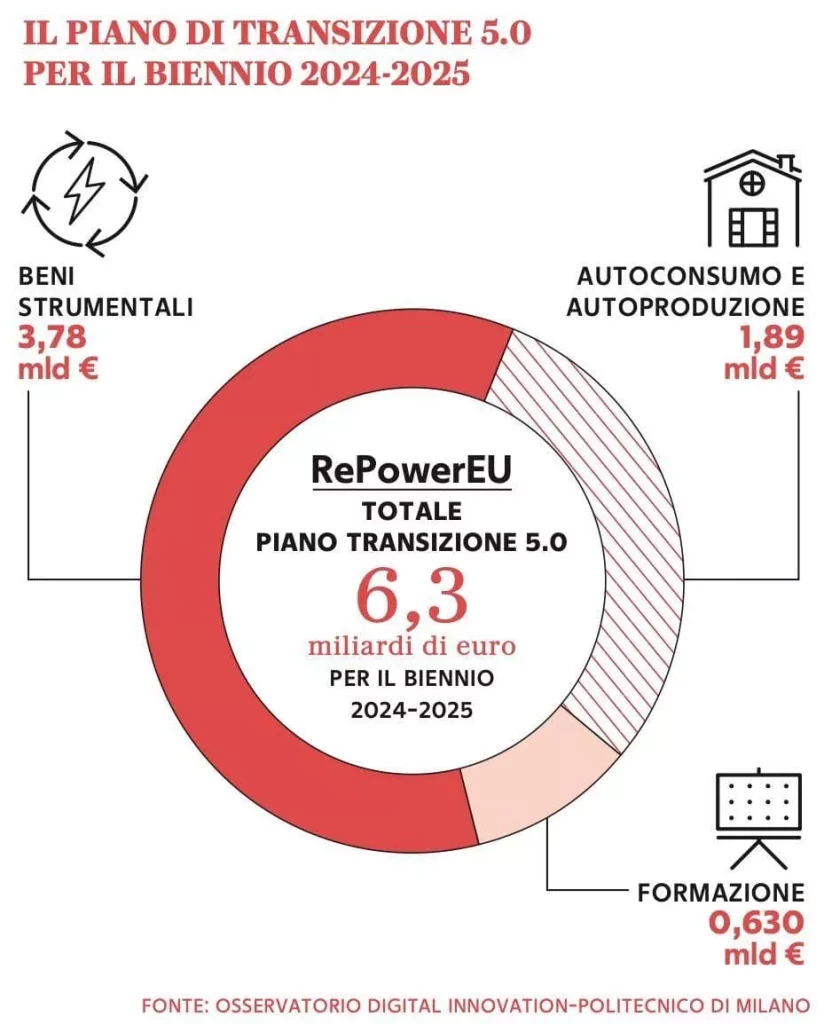
Contributing to the basis for calculating the tax credit are investments and expenses relating to
– technologically advanced tangible and intangible assets, specifically: assets functional to the technological and digital transition according to the “Industry 4.0” model; intangible assets(software, systems and system integration, platforms and applications) connected to investments in “Industry 4.0” tangible assets
– tangible assets for self-production and self-consumption of energy from renewable sources;
– personnel training in skills useful for the transition of production processes.
For more information visit the Ministry’s website and consult the TRANSITION PLAN 5.0 document.
Conclusions
Industry 5.0 also represents a great opportunity for companies that develop software and IT solutions. By investing in digitisation and innovative, sustainable technologies, these companies can contribute to creating a better future for all, where technology is at the service of mankind and the planet.
Nexeeva is committed to driving this transformation by developing solutions that support companies in the transition to Industry 5.0, thereby improving operational efficiency and expanding their markets, in compliance with current regulations.
Do you want to seize the new opportunities of Industry 5.0?
Contact us to schedule an appointment
